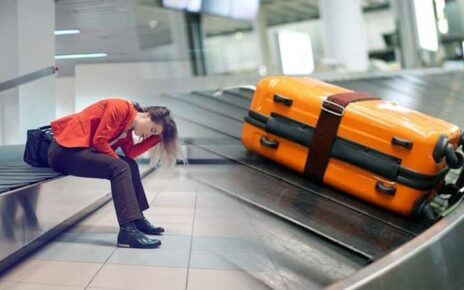In planning, development, and promotion, it behooves a nation to have government involved every step of the way in the tourism product.
- Tourism needs the support of the public sector by way of providing the needed operational enabling environment in the areas of public infrastructure.
- To achieve meaningful and sustainable tourism development goals, there is the need to adopt an informed innovative public-private partnership.
- Innovative and sustainable tourism programs and initiatives should be given priority attention with regards to anticipated global public sector recovery funding post COVID-19.
Planning is as important as the development of tourism within a region or destination. It is vital that policy decisions on the tourism sector are made based on scientific data rather than guesses or hunches and must be jointly achieved by government and tourism.
The reason is that tourism has always been a competitive private sector activity, which has often resisted public sector dominance or governance. However, it needs the support of the public sector by way of providing the needed operational enabling environment in the areas of public infrastructure.
To achieve meaningful and sustainable tourism development goals, there is the need to adopt an informed innovative partnership governance approach towards tourism planning and development. This becomes imperative, because sustainable tourism management could give a strong competitive market edge that could add value to the entire tourism industry in the post-COVID-19 pandemic era.
Therefore, tourist-generating regions, businesses. and governments need to up their games by making concerted efforts in organizing regular tourism policy dialogues on how to achieve sustainable tourism development.
Innovative and sustainable tourism programs and initiatives should be given priority attention with regards to anticipated global public sector recovery funding for the tourism and hospitality sector.
Academics, local governments, and tourism businesses need to create synergies to work in partnership to develop necessary new tourism products through proper market research, training, and good governance systems for holistic tourism development and promotion.
It is against this background that one would like to take a closer look at the abundant tourism potentials of Bayelsa state in Nigeria, with a view to proffering possible solutions and recommendations focusing on exploring such veritable economic assets for job and wealth creation within the local economy.
There is no doubt that Bayelsa state has unique aquatic splendor with beautiful vegetation and a fascinating cultural heritage and history, which offer an extraordinary array of tourism products that could attract investments in the travel and tourism sub-sector of the local economy when given proper attention by the government at all levels.
Being the only homogeneous Ijaw-speaking state in the country, Bayelsa has the potential of becoming an outstanding tourism destination in Nigeria and beyond.
Therefore, with a well-articulated tourism master plan and political will, Bayelsa could enhance her tourism products to such heights that will make it a tourism business hub that could compete favorably with other known destinations within West Africa and beyond.
Bayelsa’s tourism potentials can be harnessed and promoted through a well-articulated marketing strategy that could put the state on the global tourism map, making it become so visible to attract visitors (tourists) from other parts of Africa, including Europe, Asia, and the Americas.
Apart from having the only marine park in West Africa and longest coastline in Nigeria, the state is endowed with fresh water and marine sand beaches such as Okpoama and Akassa; in the Brass local government area of Agge; in the Ekeremor local government area; at beaches in Koluama, Foropah, and Ekeni-Ezetu; and in the Southern Ijaw local government area, among others. The state has several lakes with rich fauna, cultural festivals, wildlife, and rich cultural heritage, which give Bayelsa a comparative advantage over others in blue tourism.
The beautiful marine ecosystem of the state constitutes potential for an emerging Blue Economy revenue base within the Gulf of Guinea offering opportunities for fisheries management, fish processing industries, and aquaculture, particularly caged floating pens within the natural habitats of aquatic life.
The state’s primary tourism products are basically found in its rich cultural heritage and natural resources that make it so attractive in terms of cultural heritage tourism, ecotourism, blue tourism, arts tourism, festival tourism, and wildlife, among other types of tourism offerings.
There is an urgent need to consciously work towards achieving holistic development of the state’s tourism sector to create jobs for youth in a bid to benefit from the positive economic impact that tourism development and promotion could bring to bear on its rural communities.
Today, tourism has become an important element of any local economic development strategy, having the capacity to cause a rapid multiplier effect on the local economy.
To reap from the benefits of the tourism industry, the government has to come up with actionable policy direction as well as encourage synergies with the practitioners and stakeholders through credible democratic stakeholder platforms to articulate the best strategies to harness tourism potentials in the state to achieve economic prosperity.
As tourism is interlinked with many other economic sectors, such as agriculture, transportation, education, environment, fisheries, and entertainment, identifying these sectors and how they impact sustainable livelihoods will be of importance in the post-COVID-19 pandemic tourism development agenda.
Emphasis should be laid on the need for an integrated sustainability approach in tourism planning and development in such a way that could incorporate marine ecosystem protection and conservation in the context of sustainable development.
Government has the responsibility of establishing the framework for tourism planning, development, and even promotion by engaging in the construction of public infrastructure including communication channels to promote the state’s tourist destinations to the outside world, in addition to providing the required legislation, regulations, and controls for tourism with a view to protecting the interests of all stakeholders in the travel and tourism industry.
Tourism can be defined in more than one way. Conceptually, it refers to the ideas and opinions people hold, which shape their decisions about going on trips, where to go, and what to do in such tourist destinations.
Technically, it refers to the activities of persons traveling to and staying in places outside their usual environment for not more than one consecutive year for leisure, health, business, and other purposes (Leiper 1990, Pearce 1989).
While from the sociological point of view, tourism also refers to commercialized hospitality, democratized travel, a modern variety of the traditional pilgrimage, and an expression of basic cultural themes.
However, the most significant form of tourism is its relations with the economic development of a state or country.
In many countries, tourism has become an economic activity that consumes a large part of its natural resources, generating revenue in billions of dollars every year and involving thousands of stakeholders and the general public.
As a result, it has become one of the most important responsibilities of government as to the planning, facilitating, coordinating, monitoring, and protecting of tourism sites in the state or country.
The author, PIRIYE KIYARAMO, is a travel journalist and publisher of the Blue Economy Newsmagazine, Abuja. He is also the current vice chairman of the Federation of Tourism Associations of Nigeria (FTAN), Southern Zonal Council and chairman of the Travel Writers’ Corps of Bayelsa State Council of Nigeria Union of Journalists (NUJ). He writes from Yenagoa, Bayelsa State-Nigeria.




